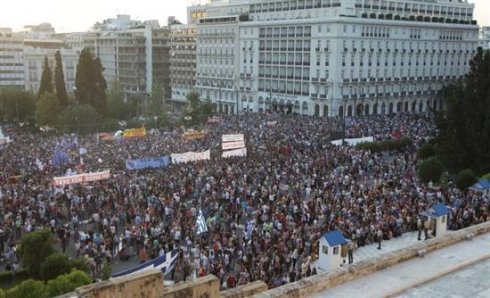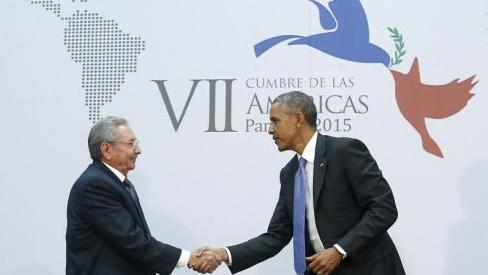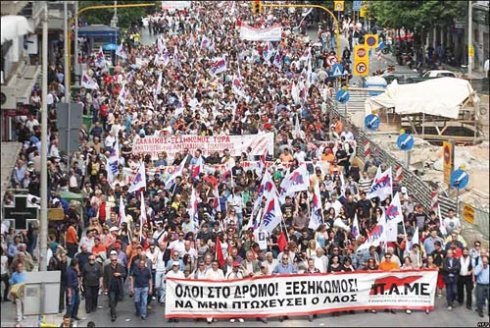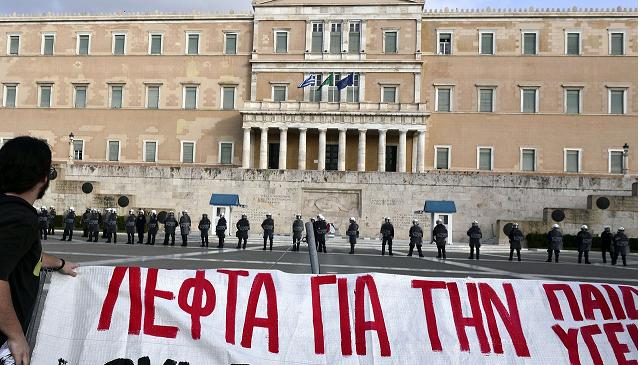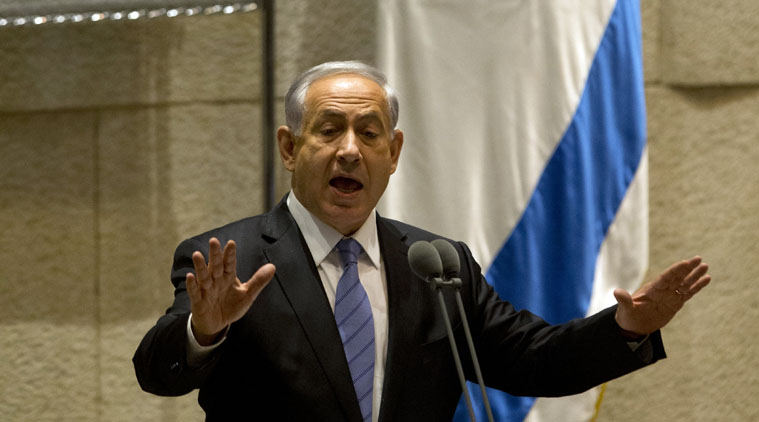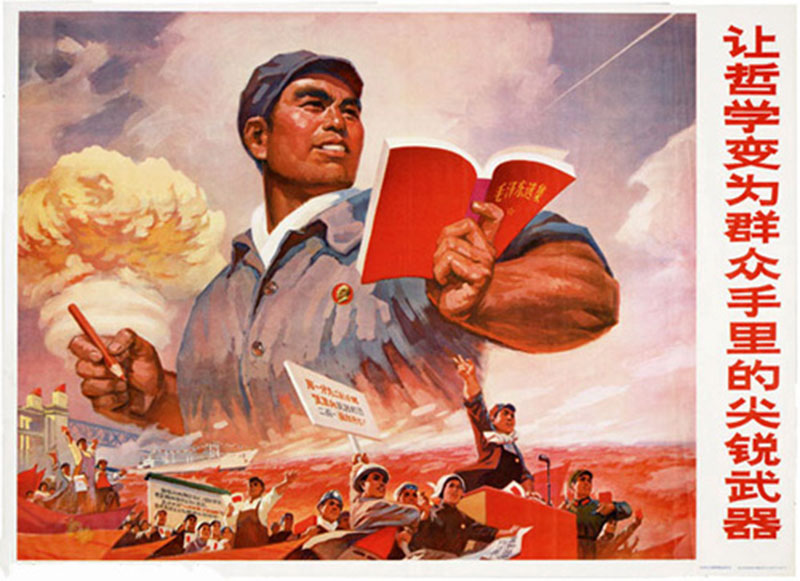Norway
The Oslo massacre and the decline of capitalism
26/08/2011
On July 22, Norway was shaken by the most horrific massacre since the end of the Second World War. First, a bomb destroyed a government building in the center of Oslo, leaving at least 7 dead. A few hours later, a man dressed as a policeman and heavily armed murdered 68 young people who were participating in the traditional summer camp of the governing Labor Party on the island of Utoya. It was expected that Prime Minister Jens Stoltenberg would attend the camp, as the main Labor Party leaders normally do. As the daily paper Le Monde says, this event is one of the "pillars of Norwegian political life," and symbolizes the way that the political elite of one of the main national parties reproduces itself, which amplifies the impact of the attack.
Immediately, and without any evidence, the local and international press blamed Islamist groups for the attacks. However, a little later it became known that the person who carried out this attack was not a member of Al Qaeda, nor a supporter of "jihad." The murderer has a "Western" name, he is known as Anders Behring Breivik and is a young man of the Nordic middle class, blond and well-educated, a former member of the right-wing Progress Party, a Christian fundamentalist, rabidly anti-Muslim and a sympathizer of the European and US extreme right.
It is not yet known whether he acted alone or had the collaboration of other individuals or organizations. But that is not the only question. With the passage of time, conspiracy theories have multiplied, that involve from local security forces up to the secret services of other countries, like the Israeli Mossad, based on the real fact that Breivik had an hour and a half to carry out his plan, without anyone stopping him, and the fact that the camp was about to discuss supporting the international boycott against Israel.
Despite the fact that in May of this year, Breivik was delayed because be bought a large quantity of fertilizer — used to make explosives —, and the fact that increasing activity of a new anti-Islamist extreme right wing had been detected, similar to what has emerged in other European countries, like the English Defense League, for the Norwegian police, the main security threat was coming from radicalized Muslim groups (Annual threat assessment 2011).
As is customary in these cases, from the main media corporations that feed racism and tirelessly wave the specter of "Islamic terrorism" as the main enemy of "Western democratic values," they are trying to explain the act by saying that Breivik is a solitary psychopath. But the truth is that Breivik spent years meticulously planning this action, which had an obvious political objective and that he left, as a testimony, a manifesto of some 1,500 pages, where he openly expounds a racist and xenophobic ideology that feeds on the anti-immigrant and warmongering policies of the "democratic" capitalist states.
Imperialism, racism and xenophobia
In the last two decades, different groups of the European extreme right wing have been increasing their influence. Although some have populist and "anti-establishment" discourses, these parties are completely functional for the interests of the bourgeoisie, since, with racism and xenophobia, they avoid questioning capitalism and divert social hatred towards immigrant workers, especially those who come from the poorest countries of Africa and the Muslim world.
This phenomenon made a leap with the outbreak of the international economic crisis, that is mainly striking the central countries, and that finds immigrant workers in a situation of extreme vulnerability. Some examples that show the electoral ascent of the extreme right are the Norwegian Progress Party, that turned into the second-strongest parliamentary force, with 23% of the votes in September 2009; the Sweden Democrats, that got parliamentary representation for the first time with 5.7% last year; the Freedom Party in the Netherlands, that in 2010 got 15.5% with a virulent campaign against immigrants, and, in France, the National Front of Marinne Le Pen, that is constantly rising in the polls for next year’s presidential elections. In addition, there are the True Finns, the Freedom Party of Austria, or the Danish People’s Party, not to mention the more traditionally neo-Nazi groups in Eastern Europe. Likewise, the emergence of the Tea Party in the US expresses this growing social and political polarization, intensified with the capitalist crisis. It is clear that this anti-immigrant and particularly anti-Islamic agenda is in no way an inheritance of the extreme right wing, but is a government policy in the countries of the European Union (EU) and the US.
Almost a decade before the September 11, 2001 attacks, the US political scientist Samuel P. Huntington had already made up his theory on the "clash of civilizations" to support anti-immigrant policies. Bush’s "war on terror" converted Islamism into the new enemy of imperialism and served to justify the wars in Afghanistan and Iraq, and to stigmatize Muslim communities. Under the Obama administration, those militarist policies have continued overseas with the imperialist attack against Libya and the actions in Pakistan and Yemen, and domestically with the toughening up of the laws against illegal immigrants, like the so-called "Arizona immigration law."
In France, Sarkozy, with the support of the Socialist Party, has prohibited Muslim women from wearing the veil in public institutions, which constitutes a brutal act of discrimination and oppression. And, in an attempt to recover his popularity, he ordered the mass deportation of communities of the Roma, which was welcomed by Berlusconi.
In the EU, both social democratic governments, like that of Zapatero in Spain, and those of the traditional right wing, have been taking increasingly harsh measures against undocumented immigrants, turning them into criminals, opening real concentration camps where they are detained and held prisoner before being deported to their countries of origin. Even German Chancellor Merkel, together with Sarkozy and Cameron, the Conservative British Prime Minister, are theorizing about the "failure of multiculturalism," to justify their heavy-handed policies.
In view of the rising tide of refugees who are arriving in Italy and other countries, desperately fleeing the bombings in Libya, European governments have discussed reestablishing border controls within the so-called "Schengen Area," liquidating the principle of free movement within the EU. These police and racist policies of the main parties of the bourgeoisie are the ones that feed the hatred of groups and individuals like Breivik.
A "lost paradise"?
From the main capitalist media, the attempt is being made to create the common opinion that Norway is the realization of a kind of "Scandinavian utopia," where prosperity, peace and social harmony are possible under capitalism, thanks to Norway’s enormous petroleum reserves and the social democratic administrations that, except for some periods of conservative governments, have succeeded one another since the years following the Second World War.
Although Norway is a small country with great petroleum wealth, which still allows it to keep higher levels of social benefits, compared with other European countries, it is far from being a "paradise" where, as an article in Le Monde says, "employers and workers know how to speak in the name of the collective interest." As in any capitalist country, its big private or state-owned multinational firms, like the Statoil petroleum company or the Yara chemical company, exploit thousands of workers in Norway and in several countries of the world. The April 2010 strike by 20,000 construction workers for wages and against greater flexibility exposed how local bosses benefit from conditions of uncertain employment in which most Polish workers employed in the sector find themselves, conditions that increased with the effects of the economic crisis that were felt particularly in 2009.
In foreign policy, Norway is a traditional US ally: it entered NATO in 1949, and, under the Labor Party, it was one of the main bastions against the advance of communism during the Cold War. Despite strong domestic opposition, it is still participating in the imperialist war in Afghanistan (it also participated in the Iraq War, when the Conservative Party was governing), and its airplanes are making a crucial contribution in bombing Libya, where Norway has big oil interests.
The rising phenomenon of the Progress Party and the horrific massacre carried out by Breivik have destroyed the social democratic illusion of a homogeneous society where class contradictions are resolved with dialogue.The Oslo attacks have brought to light the tendencies that are developing in this stage of capitalist crisis and bourgeois decline, that are now mainly targeting the most vulnerable groups, but tomorrow will turn against the organization of the workers, if the workers take a revolutionary course.
The emergence of the extreme right wing at one pole, and the emergence of class struggle with the rebellions in northern Africa, the "outraged ones" in Spain, and the Greek workers’ resistance to the brutal austerity plans, are a sign of future battles in the context of the capitalist crisis, and they show the urgency of setting up revolutionary workers’ parties that can face these challenges.
